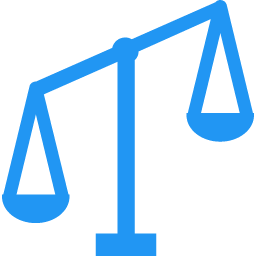Accountability vs Micromanagement
 There is a big difference between asking what people have worked on and telling them how to do every step along the way.
There is a big difference between asking what people have worked on and telling them how to do every step along the way.
Seeking accountability can very easily be mistaken for micromanagement (and usually by people who need it most). It is the leaderships role to ensure that a company’s most valuable and most expensive resources are focused and aligned to the goals of the business. It is impossible for people to know they are working on the right thing if they never ask. They will never be working on the right things if you never ask them.
Accountability delivers results.
In successful businesses everyone is accountable for the goals they have been set. Good businesses have well understood goals. Great businesses have accountable champions for each one of those goals. Great leadership ensures all teams have goals to meet. Leaders get out of the way to let their champions get there the best way they can. They also check in every once and awhile to see how they are progressing and if there is any help they can provide.
Productive people keep themselves and the teams around them informed as to their progress, and have no problems doing so. Accountability breeds ownership – it gets things done.
A productive person will have no problem being able to stand up and say “this is what I did yesterday and this is what I intend to do today.” An unproductive person may respond to the same question with “I don’t like micromanagement”. Every role has outcomes that people can be held accountable for. Even people in reactive roles can commit to improving the effectiveness of how they undertake their job.
“Accountability breeds response-ability”
- Stephen Covey
Don’t let the double edged sword of accountability cut you.
Like any tool, accountability can be wielded to negative affect. Usually this comes about by trying to assign or infer accountability after something has happened rather than getting on the same page before hand. This is bad and usually just a form of mismanagement that leads to “covering” and other ineffectual activities.
Through action or inaction the stark reality is nothing “just happens”. Someone always makes it happen (or not happen).
Tips for effective accountability:
- Meet regularly and discuss the current priorities.
- Ensure there are no roadblocks that you can help remove.
- Document and distribute the discussion.
- Follow up on the deliverables for both you and them.
- Our thoughts on how this applies to our application
We think a checklist could be mistaken for micromanagement. It isn’t. It is an accountability tool to help people not miss what is important. It frees up someone to spend their creative energy on the real problems instead of trying to remember the basics of what needs to be done. The idea is that once you know what needs to be done, get it consistently right by making a checklist.
Checklists provide a dual accountability. First in the moment the job is done ensuring that everything has been considered. Secondly afterwards to reflect on who did what, where, when, how or why.
With Clever Checklist we are aiming to take the next step. We encourage information to be collected inline with the checklist ( like a photo or a reading ) to ensure the intended results are being met. We also provide easy avenues for feedback on process improvement.
We’d love to hear your thoughts.
Have you ever mistaken Accountability for Micromanagement?





